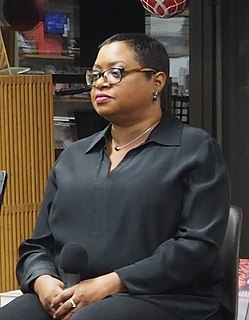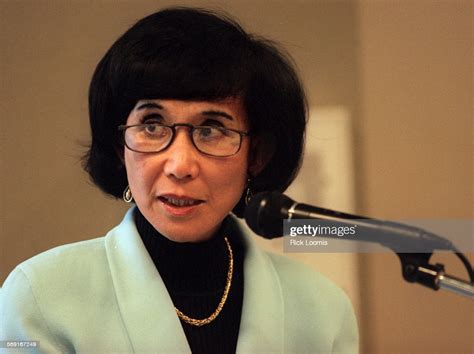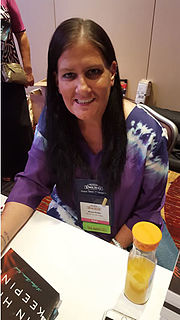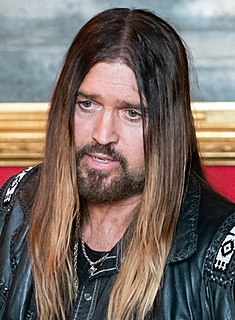A Quote by Paulo Coelho
She was doing it because she had nothing to lose, because her life was one of constant, day to day frustration.
Quote Topics
Related Quotes
When I looked at [Fannie Lou] Hamer and that speech it seemed to me that she had to be the bravest woman ever, to come before that body and to assert her rights, when she knew that she was going lose that battle. But she did it anyway, because she knew she was speaking not just for herself and for that day, but for me, and for all the other young women who were coming behind her. She didn't know our names, but she was working for us. I find that incredibly empowering.
Sharp knives seemed to cut her delicate feet, yet she hardly felt them, so deep was the pain in her heart. She could not forget that this was the last night she would ever see the one for whom she had left her home and family, had given up her beautiful voice, and had day by day endured unending torment, of which he knew nothing at all. An eternal night awaited her.
He lifted his gaze to the framed photograph of Tanya and him taken on their wedding day. God, she had been lovely. Her smile had come through her eyes straight from her heart. He had known unequivocally that she loved him. He believed to this day that she had died knowing that he loved her. How could she not know? He had dedicated his life to never letting her doubt it.
And she [Eleanor Roosevelt]loves being a star. And she loves being a teacher and a leader and a mentor and a big friend. Also, she's tall. She's one of the tallest girls in the school. And she's an athlete. And she writes many years later, at the end of her life, she writes that the happiest day, the happiest single day of her life was the day that she made the first team at field hockey. And I have to say, as a biographer, that's the most important fact. I
She sits down and puts her hand to her chest and rocks. Thinks of all she has lost and will lose. All she has had and will have. It seems to her that life is like gathering berries into an apron with a hole. Why do we keep on? Because the berries are beautiful, and we must eat to survive. We catch what we can. We walk past what we lose for the promise of more, just ahead.
She was bedridden falling a fall which broke her hip. X-rays showed that she had cancer of the colon which had already spreed. To my surprise I found her cheerful and free of pain, perhaps because of the small doses of morphine she was being given. She was surrounded by neighbours and friends who congregated at her bedside day and night. In this cosy, noisy, gregarious world of the "all-chinese" sickbed, so different from the stark, sterile solitude of the American hospital room, her life had assumed the astounding quality of a continuous farewell party.
So I called and said, 'Mommy, I'm doing a political film with Jean-Luc Godard. You have to come and sign the contract.' She thought I was lying, so she hung up the phone. But then she came the next day, even though she had never taken an airplane in her life. She came to Paris and she signed my contract.
His gaze narrowed and she could see his hands twitching again like he’d love nothing more than to throttle her. She was beginning to think it was an affliction of his. Did he go around wanting to choke the life out of everyone or was she special in that regard? “I’m afraid ’tis an urge that is entirely original to you,” the laird barked. She clamped her mouth shut and closed her eyes. Mother Serenity had vowed one day Mairin would regret her propensity to blurt out her least little thought. Today just might be that day.
Kangana has started believing in her own myth. She says she taught feminism to the film industry, she taught it nationalism. I'm glad she spelled that out because nobody else had noticed! I think she fears the day when she will no longer be in the headlines and so has to keep making outrageous statements to stay in the news.
I'm pretty laidback as a dad anyway. I just trust her so much. She has a great head on her shoulders and she makes pretty good decisions most of the time. She even has enough common sense that if she makes a bad one she makes adjustments and knows that's what life is. It's a day-by-day, step-by-step journey through life, as she says in the movie.






































